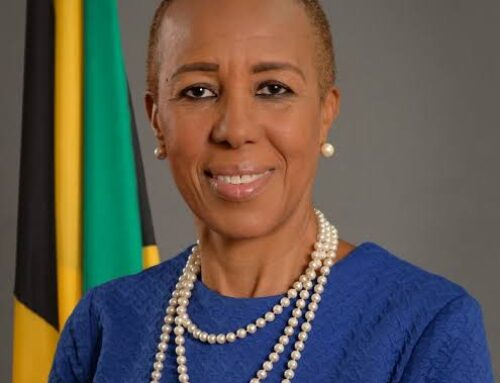
TAKING STOCK: Security risk warning for Jamaica’s Digital Currency
The Caribbean Blockchain Alliance (CBA) has cautioned Jamaican authorities that not using blockchain technology in the planned Central Bank Digital Currency (CBDC) could have far reaching implications and possibly pose a security risk for Jamaicans using it.
Speaking on Taking Stock with Kalilah Reynolds, President of the CBA, Stefen Deleveaux, defended the technology, following criticism from eCurrency CEO Johnathan Dharmapalan described on a previous episode of Taking Stock.
eCurrency won the bid to create and run Jamaica’s digital currency and has provided its own minting technology to Jamaica’s Central Bank, which Dharmapalan said was “more secure than Bitcoin”.
He also described Blockchain as having a “vulnerable security mechanism”, stating that was the reason they would not be using Blockchain for Jamaica’s digital currency.
eCurrency is reportedly using RTGS (Real Time Gross Settlement) technology, similar to what China has used to develop its own digital currency.

President of the Caribbean Blockchain Alliance (CBA), Stefen Deleveaux
However, according to Deleveaux, Blockchain is one of the most robust and secure technologies in the world, pointing to the fact that the trillion dollar platform has not been hacked, even though it’s believed that many have tried.
“Comparing anything to it is a complete misrepresentation in our opinion,” he said.
Deleveaux also explained that there are two categories of the digital infrastructure – the fully open blockchain technology which anyone can use, and a more private version which affords more control over who can use or see it.
He argued that blockchain also has different layers of security, provides levels of interaction and can be customized, as evidenced in its use in the Bahamas Sand Dollar and the Eastern Caribbean Central Bank’s D-Cash.
Blockchain technology will also be powering the eNaira, the most recent Central Bank Digital Currency to be announced, which is expected to become publicly available to a segment of Nigeria’s population later this year. Barbados-based fintech company Bitt Inc won the Nigerian contract.
The CBA President said while eCurrency’s technology has not been made public for the association to compare it to blockchain, the centralized nature of it makes it more of a security risk for Jamaica.
“If you have a centralized infrastructure; and centralized infrastructures get hacked all the time; and you’re basing your entire monetary base off of it, anything that could potentially go wrong could go wrong…and that could raise serious issues and disrupt the lives of potentially everybody in the country so the possibility for negative effects is there and if there are any it would be far reaching,” he said.
He admitted that eCurrency’s technology may still have some level of verifiability, but not at the level that blockchain allows.
“It’s very important for people to know that blockchain is the superior infrastructure to use for these platforms as we’ve seen all over the world,” he said.
In a LinkedIn post, the CBA had urged the Jamaican authorities to rethink the current methodology and engage experts in the region. Deleveaux explained that the position was not to infringe on the free marketplace but rather to protect the more exposed nations like Jamaica.
“As countries that are more vulnerable to the elements in all forms, we have to make sure that we use the strongest and most robust systems at all times,” he added.
In the meantime, the CBA President said the association continues to push for the use of blockchain technology across the region which can elevate the Caribbean into the “next level of internet infrastructure”.
He said integrating the technology into systems across the regional territories will help to improve integration as well as outdated systems dealing with transactions and trades.
“We’re caught up with the banks and Western Union. If I [in the Bahamas] want to send money to Jamaica, I have to send it through New York and that takes time, which adds money. Now if we had the systems where we can build currencies tied to the national currency in all of our countries that just makes it so much easier and secure,” he said.
The CBA President said while he nor the association has no claim to the development of any of the CBDCs in the region, the 180 member association has been interacting with blockchain and cyber security experts as well as regulators and regional Governments.
New episodes of Taking Stock with Kalilah Reynolds premiere Tuesdays at 8pm on YouTube and kalilahreynolds.com
-END-
Ask The Analysts
The Cast David Rose Business Writer, Observer Leovaughni Dillion Investment Research & Sovereign Risk Analyst at JMMB Group
R.A. Williams to list on JSE
The Cast Audley Reid CEO R.A. Williams Distributors Julian Morrison Founder, Wealth Watch JA










Leave A Comment